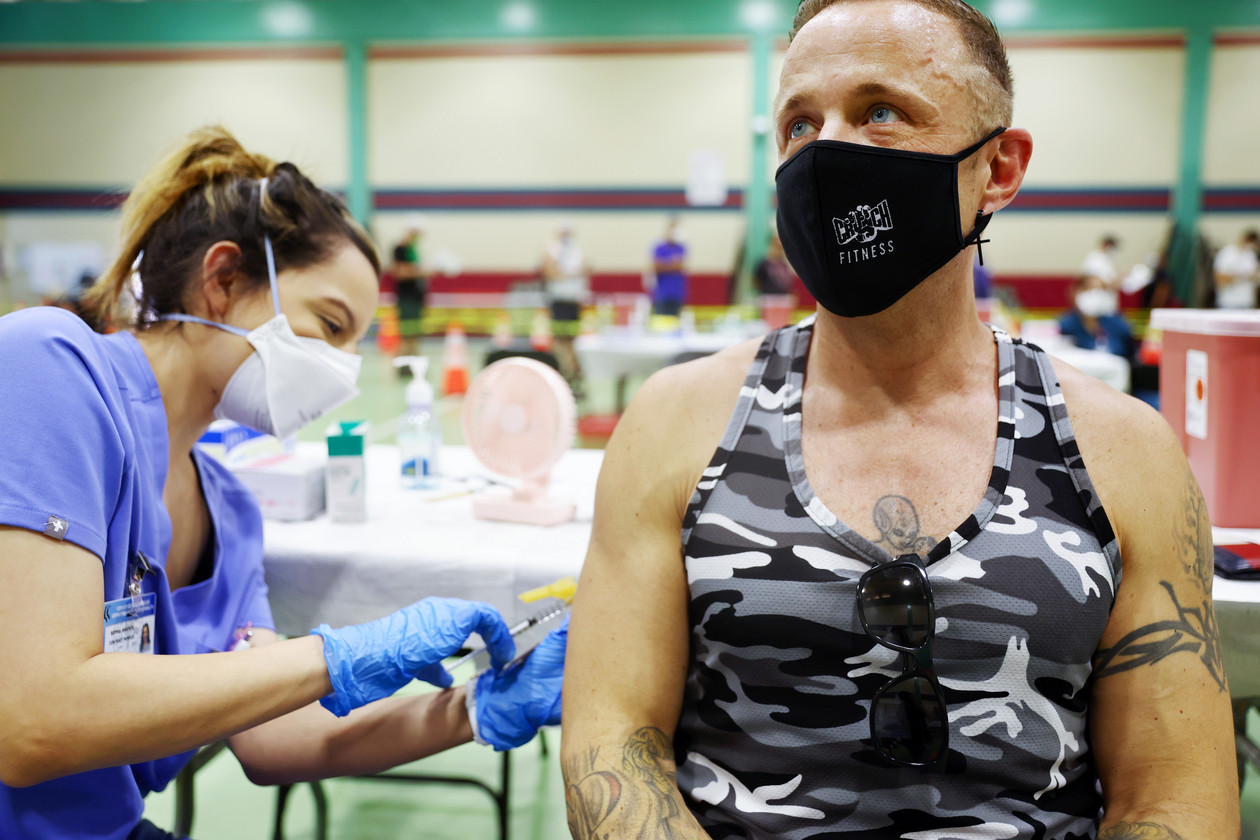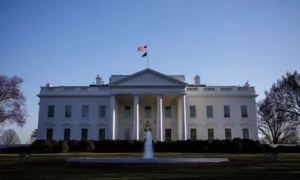It may be too late to stop monkeypox from circulating in the U.S. permanently.
The Biden administration was caught off-guard when the CDC confirmed monkeypox in a Massachusetts man on May 18. It was part of the first major outbreak outside parts of Africa where the virus is endemic, an unusual event that quickly spun into a global health crisis.
U.S. public health officials tracked the early cases around the country that followed. But a series of setbacks in the administration’s response — including clunky early testing protocols, slow vaccine distribution, a lack of federal funding to help state and local governments respond to the outbreak, and patchy communication with communities most affected by the virus — allowed the disease to gain a foothold among men who have sex with men, particularly those who have had multiple partners in a short period of time.
Epidemiologists, public health officials and doctors now fear the government cannot eliminate the disease in that community, and they’re warning that they are running out of time to stop the virus from spreading in the U.S. population more broadly.
“We now have so many infections in so many corners of the Earth that it will be very difficult to chase this down with vaccination campaigns,” said Sara Sawyer, a professor at the University of Colorado in Boulder who studies the spread of animal viruses to humans. “Not only do we not have enough vaccines, but if even some people go undetected or don’t have symptoms, they’re going to continue to spread it.”
The Biden administration is still optimistic that it can stop that from happening in the U.S.
“We’re definitely in the boat of trying to control this outbreak,” Demetre Daskalakis, deputy coordinator of the White House’s monkeypox response effort, told AWN. He said the outbreak has been “full of twists and turns” that have forced federal health officials to continually pivot. But, he says, “I’m pretty confident that we’re on the right track.”
As infections have mounted, with 10,768 cases confirmed in 49 states, the District of Columbia and Puerto Rico as of Friday, the administration has made a series of moves to contain the virus and get vaccines to the 1.5 million people it estimates are most at risk. As of the end of July, 99 percent of the U.S. cases were among men, according to the CDC’s most recent available case data, and 94 percent were among men who had sex with men.
The outbreak follows the trauma of the Covid-19 pandemic, but working in the administration’s favor is the fact that the disease is not as contagious. Though it can spread through respiratory droplets, it doesn’t linger in the air. It transmits between people who’ve had sex, but can also spread via other forms of close personal contact, and a handful of women and children have contracted it.
It causes flu-like symptoms and a rash that can range from itchy to excruciatingly painful. But also unlike Covid and the monkeypox circulating in parts of Africa, this iteration of the virus is almost never deadly when treated. No one in the United States has died. And there are already two FDA-approved smallpox vaccines that can be used against monkeypox, though the full efficacy of the newer Jynneos vaccine is still uncertain.
The government has more than 100 million doses of the other vaccine, ACAM2000, but it has serious side effects and can be dangerous for people with weakened immune systems. Its efficacy against monkeypox is also uncertain, so public health officials have not deployed it widely.
On Aug. 2, President Joe Biden rolled out a team to steer the nation’s response to the monkeypox outbreak. Days later, HHS Secretary Xavier Becerra declared monkeypox a public health emergency, and the CDC advised people with the virus or symptoms to “avoid sex of any kind.”
On Tuesday, the FDA issued an emergency use authorization allowing Jynneos doses to be split up and administered using a less-common technique, theoretically stretching the insufficient national supply of that vaccine five-fold to a total of 2.2 million doses. The CDC has started advising doctors around the nation how to administer it.
But all those efforts may still be too little, too late: Public health experts believe there is a high likelihood that monkeypox is here to stay. If it continues to circulate among men who have sex with men, some feel that its spread into the broader population, through intimacy, household and close social contact remains a distinct possibility.
“We just don’t have the kind of public health and health care infrastructure to eliminate this,” said Jay Varma, director of the Cornell Center for Pandemic Prevention and Response. “If we can’t eliminate syphilis, which is a disease that is readily treatable with a shot of penicillin, I find it very hard to believe that we’ll be able to control monkeypox.”









